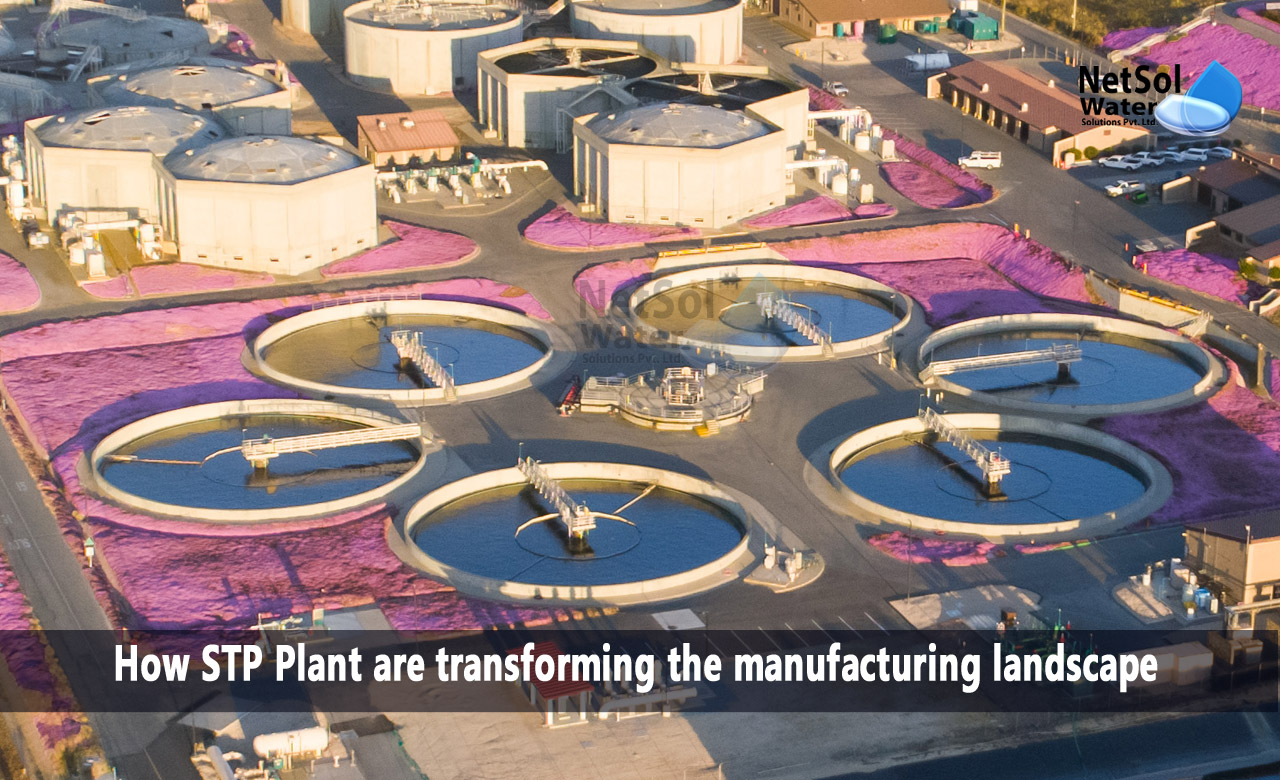How STP Plant are transforming the manufacturing landscape?
As industries strive to become more sustainable, the role of manufacturers in environmental responsibility cannot be overstated. One crucial aspect of this responsibility lies in the effective treatment of wastewater generated during manufacturing processes. Sewage treatment plants (STPs) have emerged as game-changers, enabling manufacturers to take significant steps toward environmental responsibility.
In this blog post, we will explore how STPs are transforming the manufacturing landscape, promoting a cleaner and more sustainable future.
1- Preserving Natural Resources
Water is a precious resource, and its responsible use is essential for the preservation of our ecosystems. Sewage treatment plants enable manufacturers to treat and recycle wastewater, reducing their reliance on freshwater sources. By implementing STPs, manufacturers can minimize water consumption and contribute to the conservation of natural resources.
STPs treat wastewater through processes such as filtration, sedimentation, and biological treatment, ensuring that contaminants and pollutants are removed. The treated water can then be reused within the manufacturing process or returned to natural water bodies, significantly reducing the strain on freshwater supplies.
2- Mitigating Water Pollution
One of the significant challenges in manufacturing is managing the discharge of wastewater and preventing it from polluting natural water bodies. Untreated wastewater can contain harmful substances, chemicals, and pollutants that pose a threat to aquatic ecosystems and public health. Sewage treatment plants play a crucial role in mitigating water pollution by effectively removing these contaminants from wastewater.
STPs employ advanced technologies and treatment processes that target specific pollutants, such as heavy metals, organic compounds, and suspended solids. By treating wastewater before its release, manufacturers can significantly reduce the ecological impact and protect the quality of water bodies, ensuring the well-being of both the environment and surrounding communities.
3- Meeting Regulatory Standards
Compliance with environmental regulations is not only a legal requirement but also a moral obligation for manufacturers. Failure to meet regulatory standards can lead to severe consequences, including fines, legal actions, and reputational damage. Sewage treatment plants provide manufacturers with a reliable and effective means to meet and exceed these stringent wastewater treatment standards.
STPs are designed to remove pollutants and ensure compliance with parameters such as biochemical oxygen demand (BOD), chemical oxygen demand (COD), pH levels, and other specific regulatory requirements. By investing in STPs, manufacturers can demonstrate their commitment to environmental responsibility and maintain a positive relationship with regulatory authorities.
4- Enhancing Corporate Reputation
In an era where sustainability and social responsibility are highly valued, a strong corporate reputation is a significant asset. Manufacturers that prioritize environmental responsibility through the implementation of STPs enhance their brand reputation and gain a competitive edge in the marketplace.
Consumers are increasingly drawn to companies that demonstrate a commitment to sustainable practices. By investing in STPs, manufacturers can showcase their dedication to environmental stewardship and position themselves as responsible corporate citizens. This reputation not only attracts environmentally conscious customers but also fosters trust and loyalty, leading to long-term business growth.
5- Driving Innovation and Collaboration
The implementation of sewage treatment plants encourages innovation and collaboration within the manufacturing industry. Manufacturers are continually seeking advanced technologies and processes to improve the efficiency and effectiveness of wastewater treatment. This drive for innovation fosters collaboration with experts, researchers, and technology providers, leading to the development of cutting-edge solutions for sustainable manufacturing practices.
By embracing STPs, manufacturers join a growing community of businesses committed to environmental responsibility. This community offers opportunities for knowledge sharing, best practices, and collaboration, ultimately accelerating the transition toward a more sustainable manufacturing sector.
Conclusion
Sewage treatment plants have revolutionized the manufacturing industry's approach to environmental responsibility. By treating wastewater, preserving natural resources, mitigating water pollution, and meeting regulatory standards, manufacturers can significantly reduce their environmental impact. Furthermore, the implementation of STPs enhances corporate reputation, drives innovation, and fosters collaboration within the industry.
As manufacturers embrace the game-changing potential of sewage treatment plants, they play a pivotal role in creating a cleaner and more sustainable future. By prioritizing environmental responsibility, manufacturers not only fulfill their obligations but also position themselves as leaders in sustainable manufacturing practices.
Netsol Water is Greater Noida-based leading water & wastewater treatment plant manufacturer. We are industry's most demanding company based on client review and work quality. We are known as best commercial RO plant manufacturers, industrial RO plant manufacturer, sewage treatment plant manufacturer, Water Softener Plant Manufacturers and effluent treatment plant manufacturers. Apart from this 24x7 customer support is our USP. Call on +91-9650608473, or write us at enquiry@netsolwater.com for any support, inquiry or product-purchase related query.



